There is an indirect link between the sweet substance and the condition

Sugar — it’s all around us and in a lot of foods we like to eat.
Advertisement
Cleveland Clinic is a non-profit academic medical center. Advertising on our site helps support our mission. We do not endorse non-Cleveland Clinic products or services. Policy
You probably know cakes, pies, cookies and other treats are laden with the sweet substance.
But it may be harder to determine if certain foods like barbeque sauce, breakfast cereal and dairy have a lot of added sugar.
Can you get diabetes from eating too much sugar?
“Sugar doesn’t directly cause diabetes, but it plays a part,” says diabetes educator Sue Cotey, RN.
She explains the relationship between sugar and diabetes and how you can reduce how much sugar you eat.
The answer isn’t so straightforward.
“Sugar indirectly increases your risk of getting diabetes,” says Cotey. “For example, if you consume a lot of sugar, your pancreas responds by making more insulin because your body wants to keep your blood sugar (also known as blood glucose) levels in a normal range. If you think about that long term, those extra calories lead to weight gain.”
Having overweight/obesity is one of the risk factors for developing Type 2 diabetes.
“Over time, your pancreas is going to more or less start to get fatigued because it’s trying to keep up with the demand of keeping your blood sugar low,” explains Cotey.
Other diabetes risk factors include:
You may experience symptoms like a dry mouth, increased thirst, frequent urination, fatigue and blurred vision with diabetes.
Advertisement
It boils down to misconceptions such as thinking that all sugar is bad. For example, Cotey says that people frequently ask her about the sugar in fruits.
“They’ll say they’re afraid to eat fruit because it breaks down to sugar,” she shares. “We have to educate people about the other things that come from fruit like fiber and vitamins. Fiber is such an important thing in our diet. And you don’t get that from meat — you get that only from plants. Fiber helps slow down the rise in your blood sugar. It helps you feel full and it helps with regulating your bowels.”
Sugar is considered a simple carbohydrate, which causes your blood sugar to spike.
Some foods contain natural sugars:
Other foods contain added sugar. Some common names for added sugar include:
So how can you know how much sugar is in something you want to eat? Read the food label — and look for the different aliases that sugar goes by. Another pro tip? Many times, there’s more than one type of sugar listed, so while it may appear that an item doesn’t contain a lot of added sugar, there may be three or four different versions of sugar used.
In addition to Type 2 diabetes — the most common form of diabetes — there are other kinds of diabetes like gestational diabetes and Type 3c diabetes.
If you have too much glucose in your bloodstream, it can cause diabetes, regardless of type. But the reason why your glucose levels are high may differ. Some causes include:
Some forms of diabetes like Type 1 diabetes can’t be prevented, but you can lower your risk of prediabetes, Type 2 diabetes and gestational diabetes by doing the following:
Advertisement
“The No. 1 thing you can do is eliminate or reduce the amount of high-calorie, high-sugar beverages you consume — think soda, energy drinks, flavored coffees like lattes,” informs Cotey. “That’s the biggest bang for your buck when it comes to lowering your risk of diabetes.”
Advertisement
Learn more about our editorial process.
Advertisement

A high intake of sugar can cause an increase in ‘bad’ cholesterol and a decrease in ‘good’ cholesterol

Too much added sugar early in life is linked to obesity, high blood pressure and Type 2 diabetes

Often labeled as ‘diabetes-friendly’ or ‘calorie-free,’ these sugar substitutes warrant caution
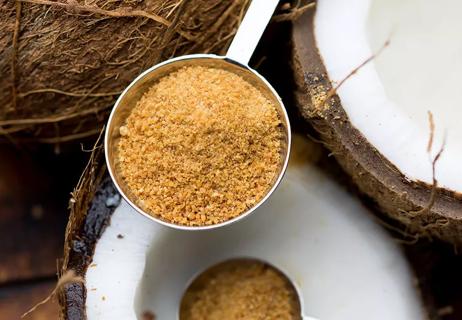
It’s touted as a healthier alternative to cane sugar, but basically, well ... it’s still just sugar
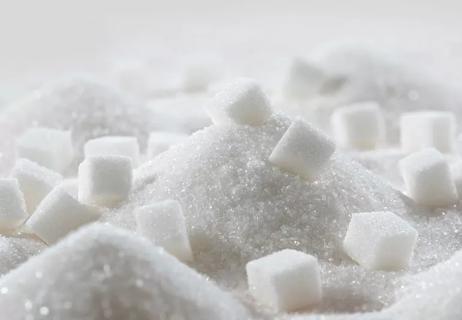
Updated food label guidelines make it easier to track added sugars in your diet
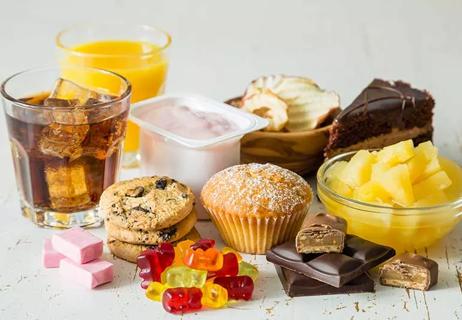
Sugary foods don’t always taste sweet, and they may not say ‘sugar’ on the label
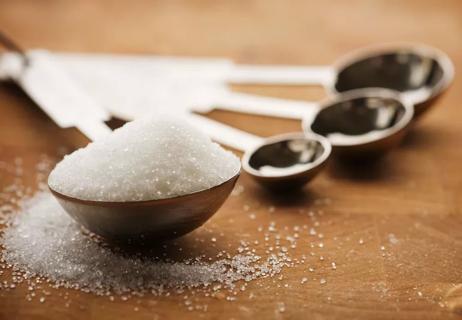
Don’t skip meals or go ‘cold turkey’ — eat a balanced diet and talk to your doctor instead
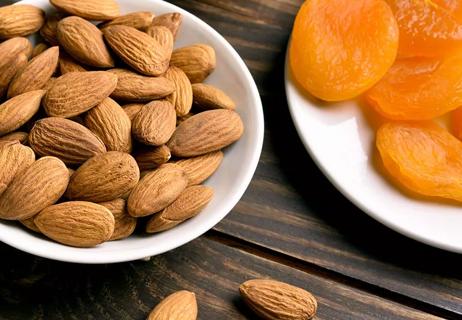
Fuel your body with healthy options that combine fiber-rich carbs, lean protein and healthy fats

If you’re feeling short of breath, sleep can be tough — propping yourself up or sleeping on your side may help

If you fear the unknown or find yourself needing reassurance often, you may identify with this attachment style

If you’re looking to boost your gut health, it’s better to get fiber from whole foods